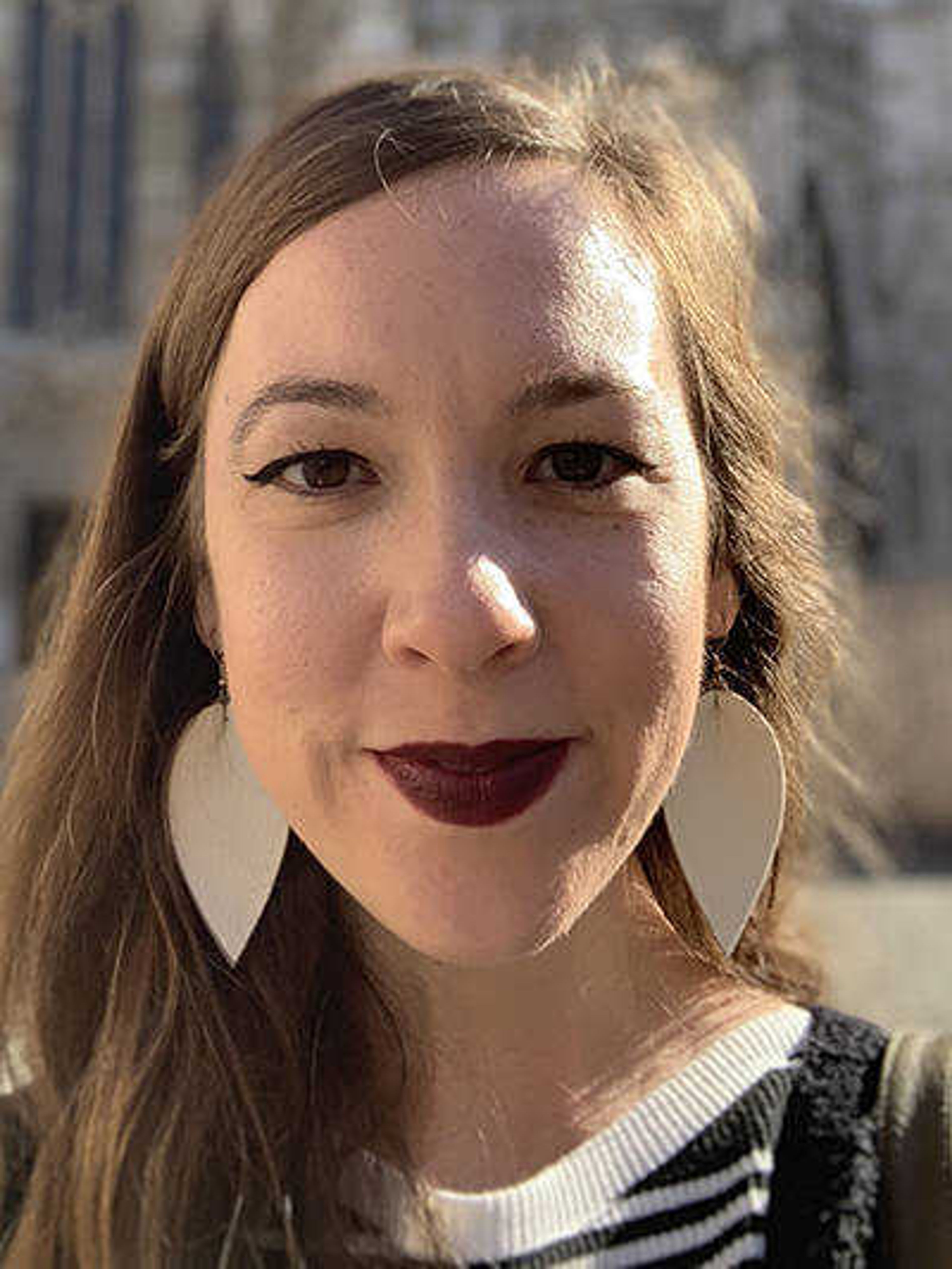By Mia Pohlman
The other weekend I sat outside a coffee shop, listening to a jazz duo play Carole King and Van Morrison. All of a sudden, a little girl walking by stood in front of us.
The girl was around four years old, wearing a pink dress with popsicles printed on it. Her blonde hair was in pigtails, falling out of the hair ties. Her face was painted like a cat. Without hesitation, she stepped in front of the musicians. In front of the six or so people sitting at little coffee tables, she closed her eyes, and danced.
Her movements combined precise technical skill and barely controlled abandon. Her lack of consciousness of self was truly beautiful to behold. It was like Adam and Eve in the garden before the fall.
I think, so often, our consciousness of our self gets in our way of serving others, of living in the love that unites us to God and other people. In "Pilgrim at Tinker Creek," Annie Dillard writes, "It is ironic that the one thing all religions recognize as separating us from our creator -- our very self-consciousness -- is also the one thing that divides us from our fellow creatures."
Our self-consciousness poses a conundrum: we need it to understand how we uniquely fit into the Body of Christ, and yet it so often keeps us from fully experiencing the present, from being, from believing that our God is God.
This dancing girl, though, somehow had it figured out: not only was she completely consumed in the present moment, every now and then she opened her eyes and caught a glimpse of her own reflection in the coffee shop window. When she saw herself, she would smile ever so slightly, noticing her own beauty -- looking for it -- and approving it. She saw only her goodness, her unique reflection of Christ, her true self. She did not try to deny this true self by frowning at her reflection or stopping her dance. She saw and she accepted and she gave.
She reminded me of Christ and 2 Timothy 2:13 (NAB): "If we are unfaithful he remains faithful, for he cannot deny himself."
Adam and Eve in the garden denied who they were, denied their very human-ness in the pursuit of trying to be God. I think one of the effects of original sin is the desire to be anything but who we are, to deny what we have to offer and instead try to be someone we are not. In denying ourself, we deny the God whose image we bear uniquely.
Thomas Merton points out in "New Seeds of Contemplation" that during his passion, Jesus battled the temptation to deny his true self that was one with God.
"Will you deny yourself and say you are not yourself?" the people in power asked Christ at his crucifixion when they wouldn't believe he was the Son of God.
"No," he said, with his silence.
Let's take a cue from this little girl and see Christ reflected uniquely in ourselves, and then give all we have to offer in love to those around us.
Connect with the Southeast Missourian Newsroom:
For corrections to this story or other insights for the editor, click here. To submit a letter to the editor, click here. To learn about the Southeast Missourian’s AI Policy, click here.









